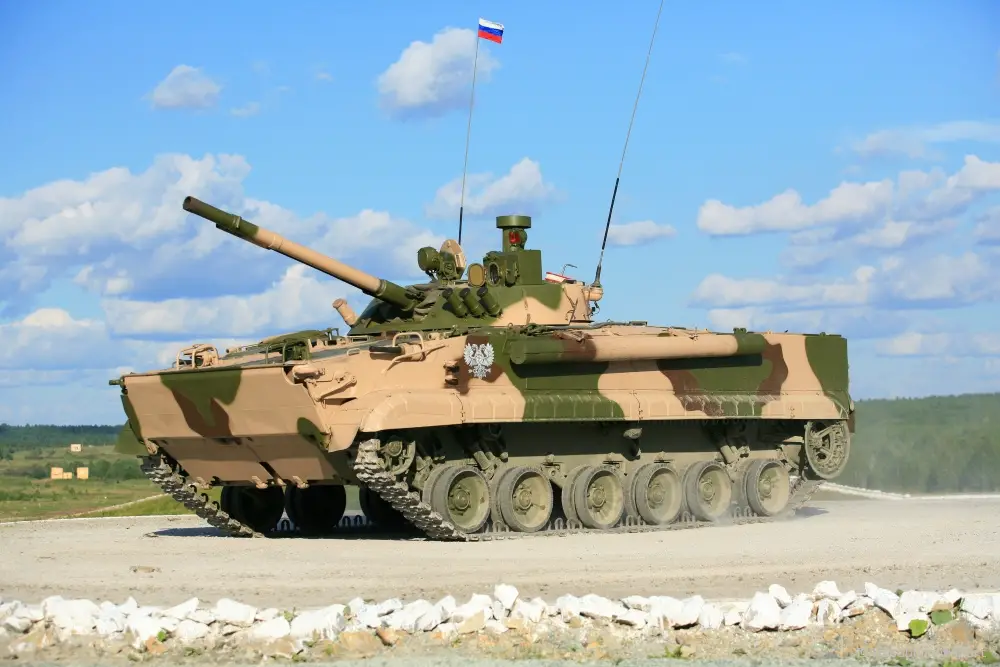The Russian press agency TASS reported that the Russian Defense Ministry signed an additional deal to the contract for the supply of 168 BMP-3 infantry fighting vehicles (IFV). The contract with KBP Instrument Design Bureau has been the biggest of late. The BMP-3 will have reinforced protection against antitank missiles, modern optical and electronic devices, and laser light for night combat. The upgraded BMPs are to be delivered in 2020 and will reinforce the Russian ground troops in the Southern Military District. The Russian ministry procured 168 BMP-3 worth over 14 billion rubles to be delivered in 2020-2021. It is sufficient to rearm five-six motorized rifle battalions.

The BMP-3 will get additional protection against antitank missiles and the latest optical-electronic devices with a laser projector. Standard weight of the vehicle is 18.7 tonnes. If additional armour overlay (metal sheet of armour and Kaktus ERA) is installed, weight will reach to 22.2 tonnes. The body covered from the sides and the top. In such kit, it is protected against 12.7 mm machine gun rounds in the range of 100–200 m. Pod-type protection is the main feature of upgraded BMP-3. The vehicles have a set of dismountable screens and anti-cumulative bars. The design of the Research Institute of Steel has to reliably protect the hull and the turret. It destroys antitank grenades and missiles before they explode.

The BMP-3 is a Soviet and Russian infantry fighting vehicle, successor to the BMP-1 and BMP-2. The abbreviation BMP stands for boevaya mashina pehoty (literally “infantry combat vehicle”). The BMP-3 is one of the most heavily armed infantry combat vehicles in service, original version of BMP-3 has a turret fitted with a low-velocity 2A70 100 mm rifled gun, which can fire conventional shells or 9M117 Bastion ATGMs (AT-10 Stabber). 40 100mm-rounds and 8 ATGMs are carried. A 2A72 30 mm dual feed autocannon with 500 (300 HEI and 200 APT) rounds and a rate of fire of 350 to 400 RPM, and a 7.62mm PKT machine gun with 2,000 rounds, all mounted coaxially in the turret.












